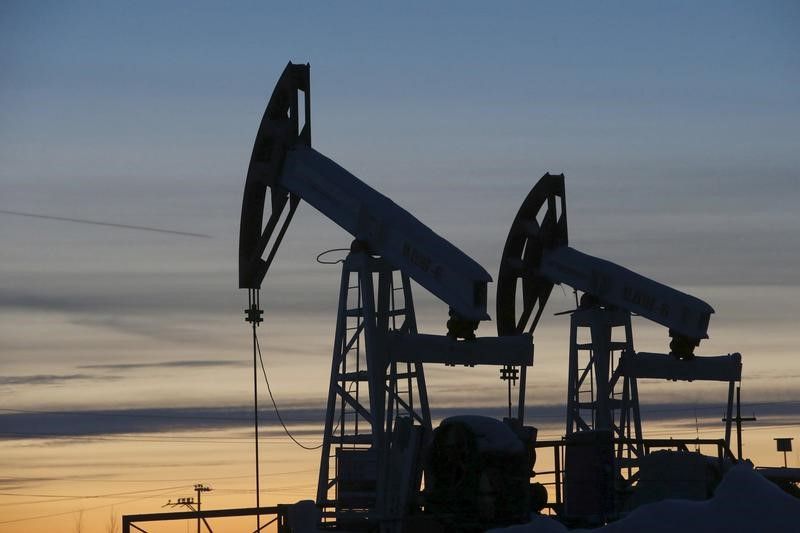
Brent crude futures LCOc1 were at $48.28 per barrel at 0523 GMT, down 44 cents, or 0.9 percent, from their last close, Reuters said.
U.S. West Texas Intermediate (WTI) crude futures CLc1 were at $45.96 per barrel, down 50 cents, or 1.1 percent.
Crude prices have fall by more than 10 percent since late May, pulled down by an supply glut that persists despite a move led by the Organization of the Petroleum Exporting Countries (OPEC) to cut production by almost 1.8 million barrels per day (bpd) until the end of the first quarter of 2018.
Read alsoReuters: Oil rises on Saudi pledge to make real supply cuts to Asia, U.S.OPEC's own compliance with the cuts has been questioned, and the producer group said in a report this week that its output rose by 336,000 bpd in May to 32.14 million bpd.
ANZ bank said in a note to clients that prices were "under pressure earlier in the day after a report from OPEC showed that its production had increased."
Adding to the supply surplus is rising U.S. production from shale drillers that has pushed U.S. output up by 10 percent over the last year to 9.3 million bpd, not far below levels by top exporter Saudi Arabia.
"The outlook for oil hinges on the effectiveness of the OPEC cuts relative to the supply increases from U.S. shale," said William O'Loughlin, analyst at Australia's Rivkin Securities.
Data from the American Petroleum Institute showed on Tuesday that U.S. crude stocks rose by 2.8 million barrels in the week to June 9 to 511.4 million, compared with expectations for a decrease of 2.7 million barrels.
With supplies plentiful, strong demand is needed to support the market, but there are signs of a slowdown.
Global energy demand grew by 1 percent in 2016, a rate similar to the previous two years but well below the 10-year average of 1.8 percent, BP said in its benchmark Statistical Review of World Energy on Tuesday.
More specifically for oil, there are signs of a slowdown in China, long the key component of fuel demand growth, as its economy slows. The nation's refiners have produced too much fuel for it to consume, forcing a drop-off in activity.

